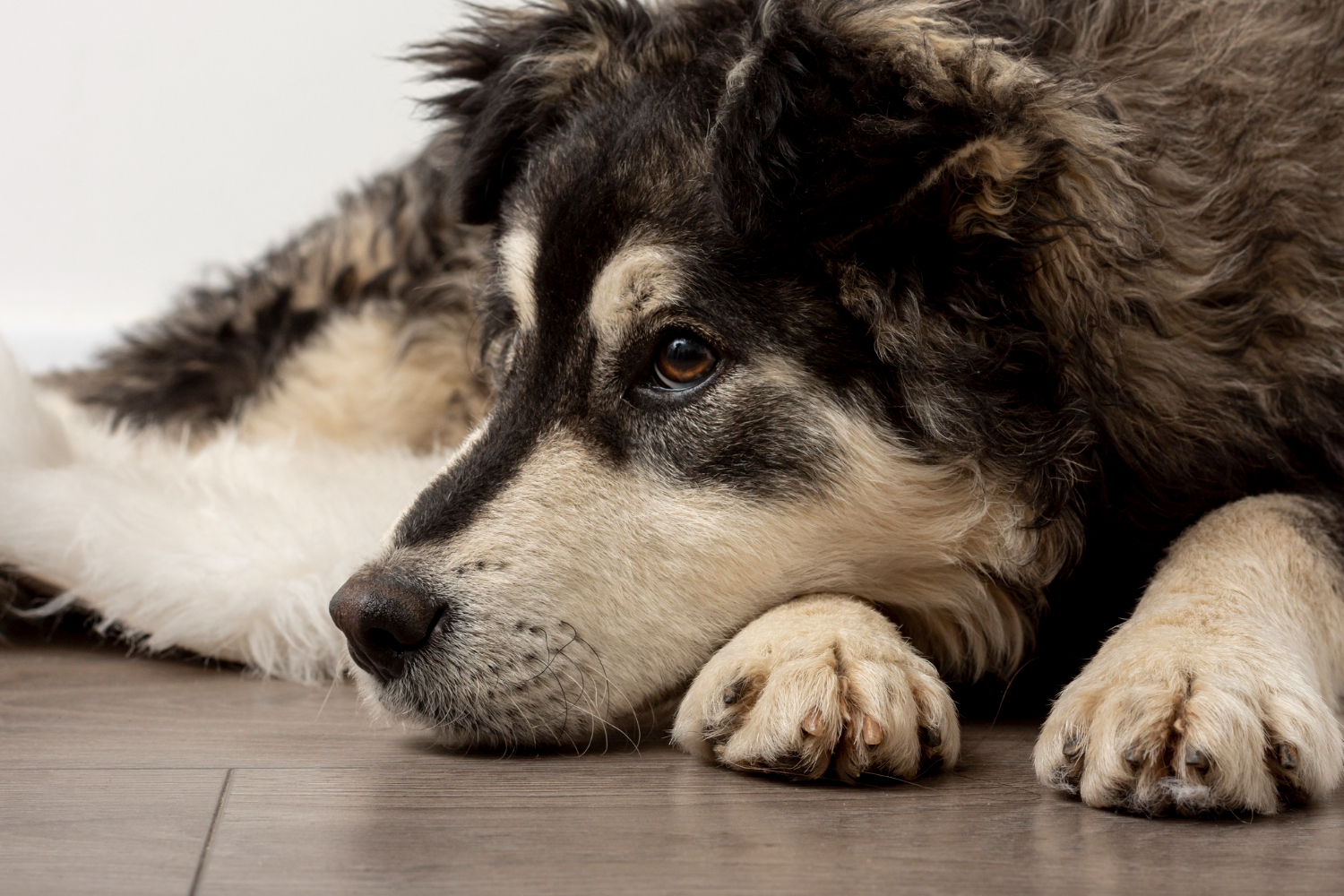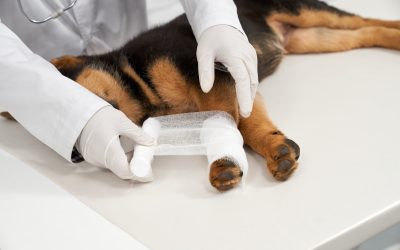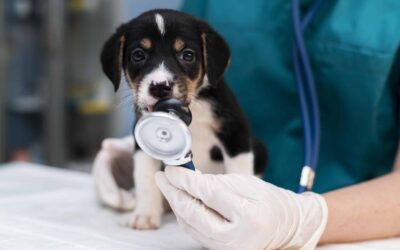Dog Allergic, Sick, Shaking, Lethargic After Vaccine

Updated October 3, 2025
When a dog returns home from the vet acting differently after receiving shots, it can be incredibly worrying for pet owners. Dogs may shake, seem tired, or show other concerning behaviors that leave their families wondering what’s happening and when they should be concerned.
Vaccine reactions in dogs can be scary to witness, but most are completely normal and resolve quickly. This guide walks pet owners through what to expect after vaccinations, when to be concerned, and how to help their furry friends recover.
Common Dog Vaccines
Understanding which vaccines dogs receive can help pet owners be more informed about potential side effects and reactions. Veterinarians typically recommend core and non-core vaccines based on the dog’s lifestyle, age, and regional disease risks.
Core Vaccines (Recommended for All Dogs):
Rabies Vaccine
Required by law in most areas, this vaccine protects against the rabies virus, which is fatal and can be transmitted to humans. Dogs typically receive their first rabies shot at 12-16 weeks of age, with boosters every 1-3 years depending on local regulations.
DHPP (Distemper, Hepatitis, Parvovirus, Parainfluenza)
This combination vaccine protects against four serious diseases. Puppies usually receive a series of DHPP shots starting at 6-8 weeks of age, with boosters every 3-4 weeks until they’re 16 weeks old. Adult dogs receive annual or triennial boosters.
Non-Core Vaccines (Based on Risk Factors):
Bordetella (Kennel Cough)
This vaccine helps prevent kennel cough, a highly contagious respiratory disease. It’s particularly important for dogs that spend time in boarding facilities, dog parks, or grooming salons. It can be given as an injection, nasal spray, or oral medication.
Lyme Disease
Recommended for dogs in areas where Lyme disease is prevalent or for dogs that spend significant time outdoors in wooded areas where ticks are common.
Leptospirosis
Protects against a bacterial infection that can affect the liver and kidneys. Often recommended for dogs that have access to standing water or live in areas with wildlife.
Canine Influenza
May be recommended for dogs that frequently interact with other dogs or are boarded regularly.
Understanding Normal Vaccine Reactions
When dogs act sluggish after vaccinations, many pet owners don’t realize this is actually a good sign. According to veterinary experts, these mild symptoms indicate that the dog’s immune system is functioning properly and responding to the vaccine.
Common Normal Reactions Pet Owners Observe:
Lethargy and Feeling “Off”
Dogs typically seem tired and less energetic for 24-48 hours after vaccines. This is the most common reaction dogs experience. It’s essentially like how humans might feel a bit under the weather after getting a flu shot.
Mild Fever
Sometimes, dogs feel slightly warm to the touch. This low-grade fever is a normal part of the immune response and typically resolves on its own within one to two days.
Soreness at the Injection Site
Dogs might be sensitive when petted in the area where they received their shot. A small, firm bump may develop, which typically resolves within a couple of weeks.
Reduced Appetite
Dogs sometimes show less interest in food the day after vaccines. As long as they’re drinking water and this improves within 24 hours, it’s usually not concerning.
When Vaccine Reactions Become Concerning
While mild reactions are normal, pet owners should be aware of signs that require immediate veterinary attention. Veterinary professionals emphasize that severe allergic reactions, though rare, can be life-threatening.
Red Flag Symptoms to Watch For:
Persistent Shaking or Trembling
If a dog continues shaking for more than a few hours after vaccination, pet owners should call their vet. While some mild trembling is normal, excessive or prolonged shaking can indicate a more serious reaction.
Facial Swelling
Any swelling around the face, muzzle, or eyes is a sign of a potential allergic reaction that needs immediate attention.
Breathing Difficulties
Labored breathing, wheezing, or any respiratory distress requires emergency veterinary care.
Vomiting or Severe Diarrhea
While mild stomach upset can occur, persistent vomiting or bloody diarrhea isn’t normal.
Hives or Severe Itching
Raised bumps on the skin or excessive scratching can indicate an allergic reaction.
Collapse or Extreme Weakness
If a dog can’t stand or seems to be in shock, this is a veterinary emergency.
What Pet Owners Should Do When Dogs Have Vaccine Reactions
Veterinarians recommend developing a routine for monitoring dogs after vaccinations:
Immediate Post-Vaccine Care
Pet owners should plan to stay home with their dogs for at least a few hours after vaccines. Most severe reactions occur within the first 2 to 4 hours, so monitoring during this period is crucial.
Creating a Comfortable Recovery Space
Set up a quiet, comfortable area where dogs can rest undisturbed. Ensure they have access to fresh water and familiar blankets or bedding.
Monitoring Without Overdoing It
Check on the dogs regularly, but avoid constantly hovering over them. Take their temperature if they seem unusually warm and watch for any changes in behavior.
When to Call the Vet
Keep the vet’s number and the closest emergency clinic’s contact information readily available. If symptoms worsen or persist for more than 48 hours, don’t hesitate to call.
Treatment Options for Vaccine Reactions
When pet owners need to seek treatment for vaccine reactions, here’s what they can expect:
Mild Reactions
For normal post-vaccine lethargy and mild discomfort, veterinarians usually recommend rest and monitoring. Sometimes they suggest an over-the-counter antihistamine, but pet owners should never give anything without veterinary approval.
Moderate Reactions
If dogs develop hives or facial swelling, veterinary treatment typically includes antihistamines and steroids to reduce the inflammatory response.
Severe Reactions
For anaphylactic reactions, immediate treatment with epinephrine, IV fluids, and intensive monitoring is necessary. While rare, knowing this treatment is available provides reassurance to pet owners.
Preventing Future Vaccine Reactions
While you can’t avoid vaccine side effects, you can take steps to reduce the risk. This will help your furry friend have a smoother experience.
- Follow vaccination schedules: Vaccination can reduce the risk of adverse reactions. So, stick to the recommended schedules for your dog’s age and lifestyle.
- Discuss your dog’s medical history: Inform your vet of any past reactions or conditions. This helps them tailor the vaccination protocol.
- Consider splitting vaccine doses: Your vet may suggest this to reduce side effects.
- Provide proper nutrition: Feed and hydrate your dog before and after vaccination. This helps their immune system and health.
- Avoid stress: Before and after vaccination, minimize your dog’s stress and anxiety. They can worsen side effects.
- Have pet insurance: Dogs’ side effects after vaccines show the unpredictability of medical needs and the potential costs associated with emergency veterinary care. That’s why having pet insurance can benefit you in this situation.
Special Considerations for High-Risk Dogs
Certain dogs are more prone to vaccine reactions:
Small Breeds
Toy breeds like Chihuahuas, Maltese, and Pugs tend to have higher reaction rates. Pet owners with small dogs should discuss this risk with their veterinarian.
Previous Reaction History
Dogs that have reacted before are more likely to react again. Veterinarians now pre-treat these dogs and use modified vaccination protocols.
Young Puppies
Puppies receiving their first vaccines sometimes have stronger reactions as their immune systems encounter these antigens for the first time.
The Importance of Continuing Vaccinations
Despite the possibility of reactions, the benefits of vaccination far outweigh the risks. Diseases like rabies, parvovirus, and distemper are far more dangerous than vaccine reactions.
Working with Veterinarians
Pet owners should have honest conversations with their veterinarians about any concerns they may have. Together, they can develop vaccination plans that protect dogs while minimizing the risk of adverse reactions.
Legal Requirements
In most areas, rabies vaccination is required by law. Even if dogs have had reactions, pet owners can work with veterinarians and local authorities to ensure compliance while keeping their pets safe.
How Can Pet Insurance Help You if Your Dog Has Side Effects from Vaccinations?
Pet insurance can be a valuable tool in managing the costs of veterinary expenses. By having a pet insurance policy in place, you can have peace of mind knowing that you can provide medical care for your furry companion without worrying about the financial burden. Pet insurance can help cover the costs of veterinary consultations, diagnostic tests, medications, and even specialized treatments if required.
What Does Odie Pet Insurance Cover?
Pet insurance covers various veterinary expenses, providing financial protection and peace of mind for pet owners. Here are the details of the coverage options offered by Odie Pet Insurance:
Illness & Injury Plan
The Illness & Injury Plan is an all-inclusive insurance plan designed to cover a wide range of medical needs for your pet. This plan includes comprehensive coverage for various illnesses, injuries, and veterinary services. Some of the covered items include:
- Veterinary exams and consultations
- Diagnostics (e.g., X-rays, lab tests)
- Prescribed medications
- Surgeries and hospitalization
- Rehabilitation, acupuncture, or chiropractic treatments
- Medically necessary supplies
- Euthanasia and cremation
The Wellness Plan
The Wellness Plan is a monthly membership that focuses on preventive care and covers routine veterinary services.
- Provides reimbursements for routine care items, including wellness visits (exams and vaccines), testing and parasite prevention, dental cleanings, at-home dental care, vitamins, supplements, and more.
- Through Odie’s partnership with Petivity, a leader in smart pet products and proactive care, Wellness Plan members can also receive reimbursements for Petivity devices and health kits, as well as eligible Purina food and supplements.
- Total reimbursement up to $700 per year.




